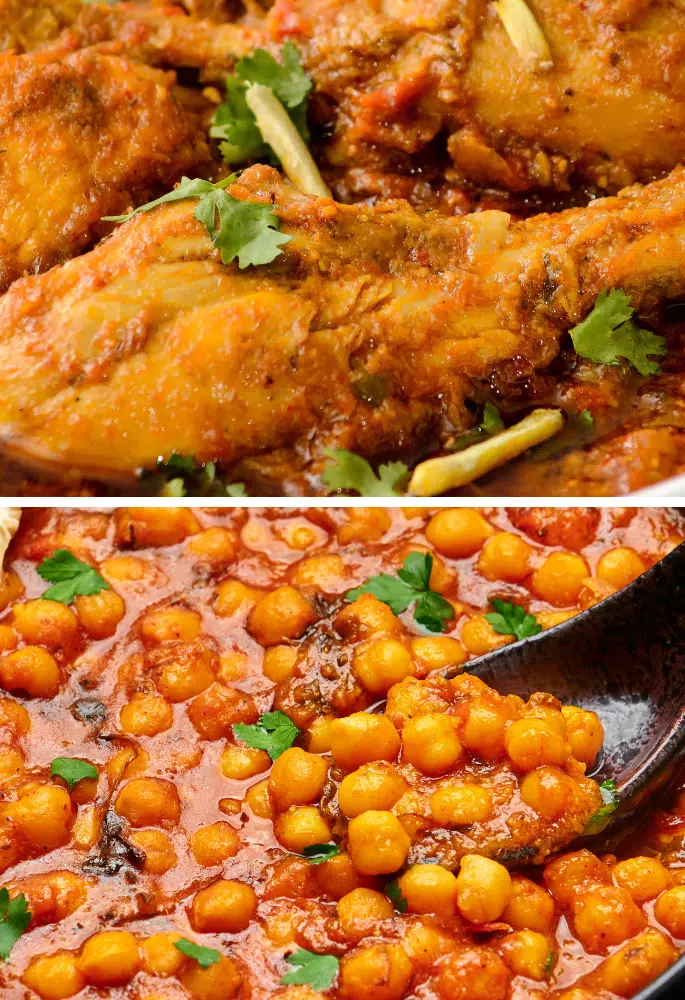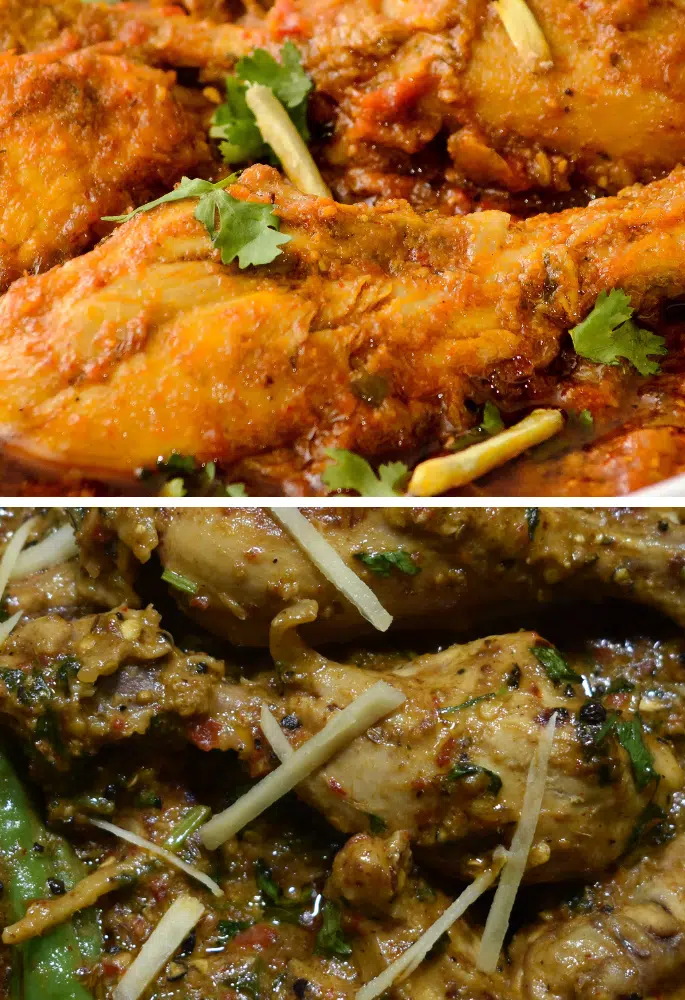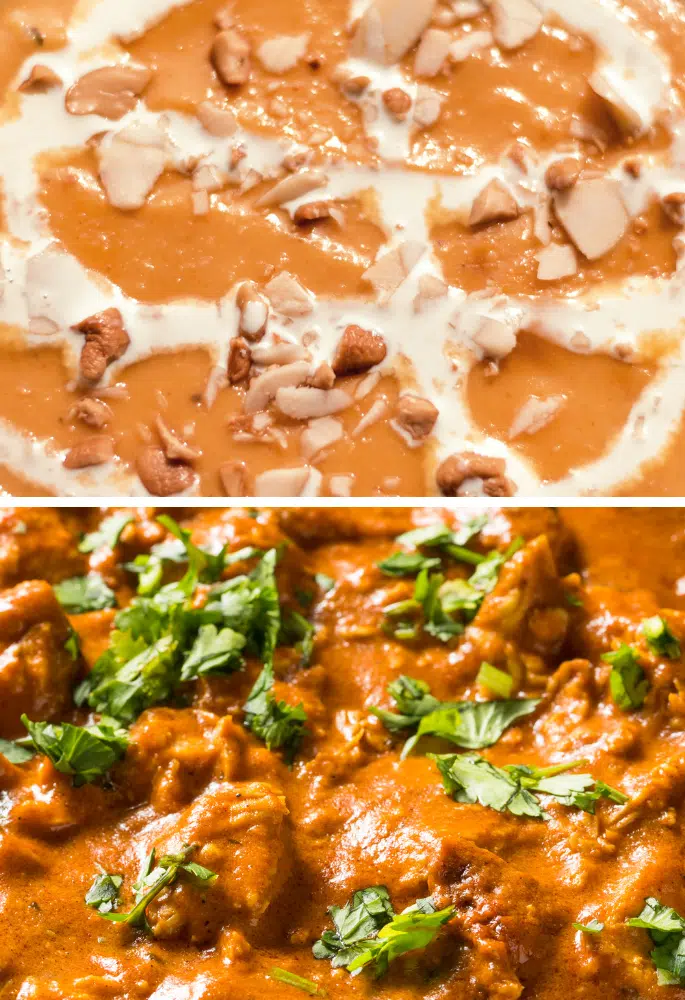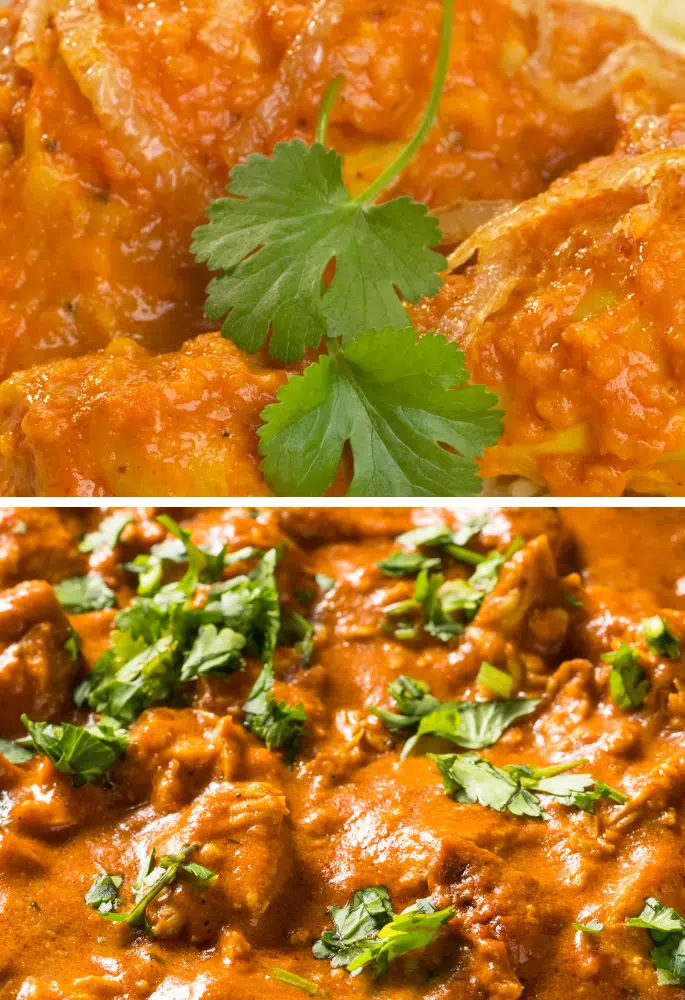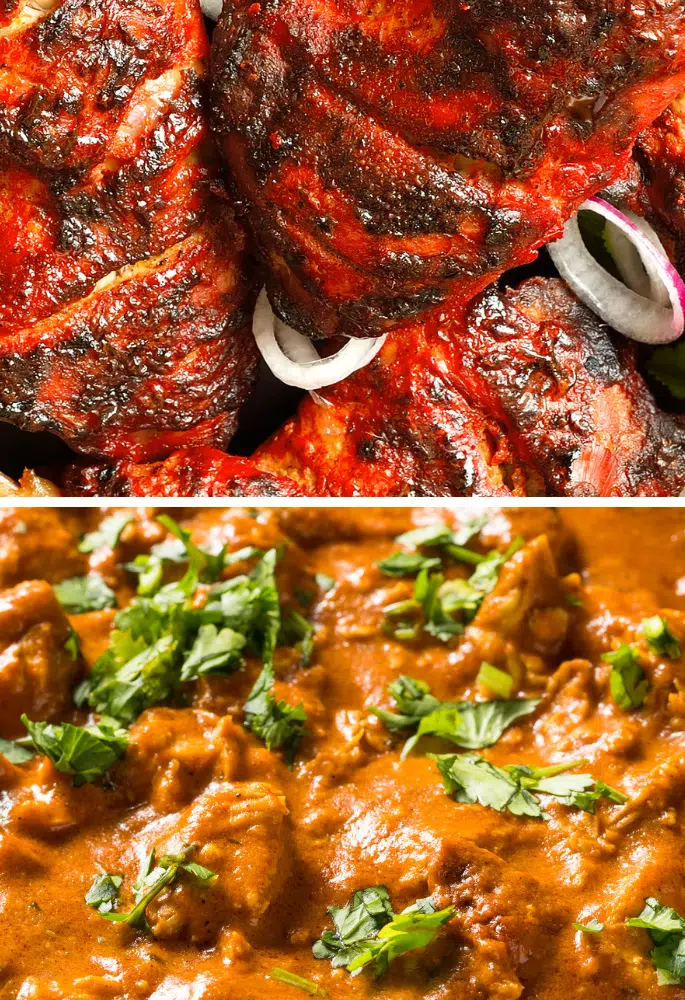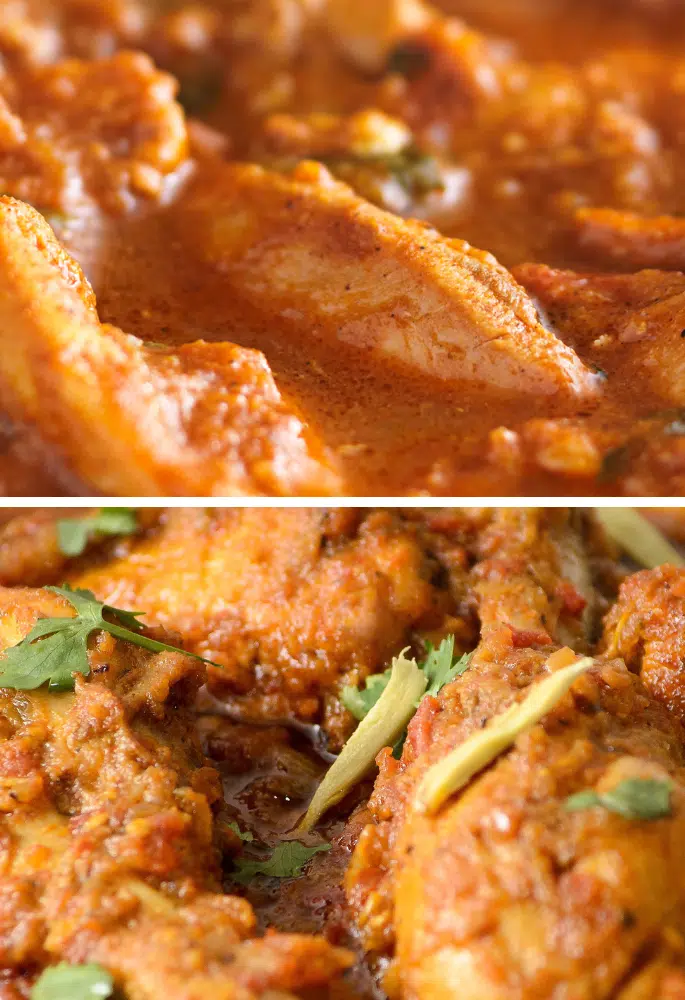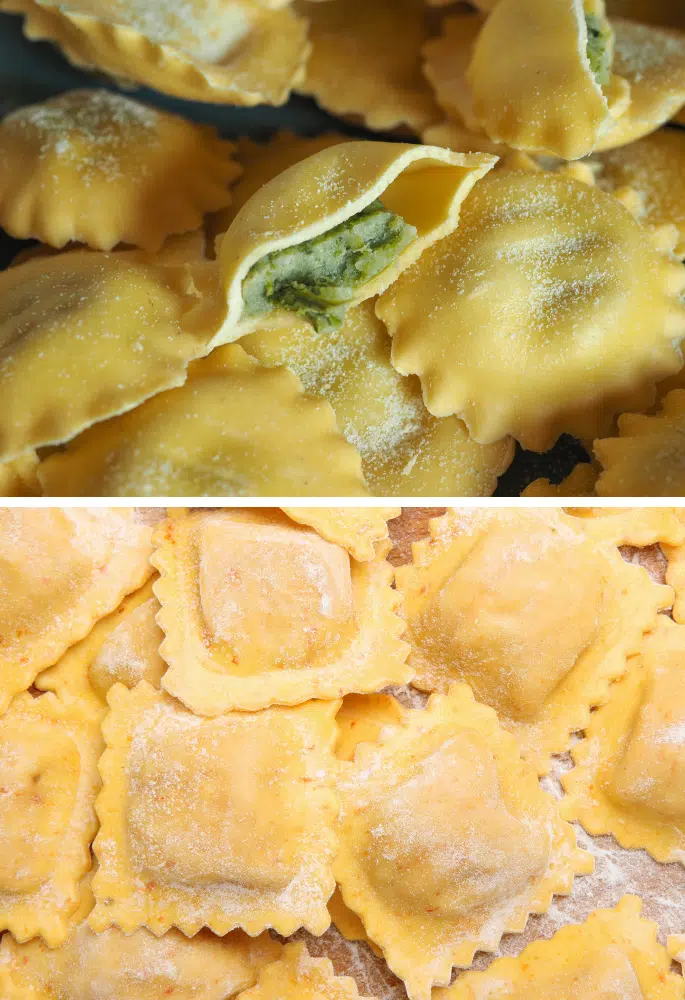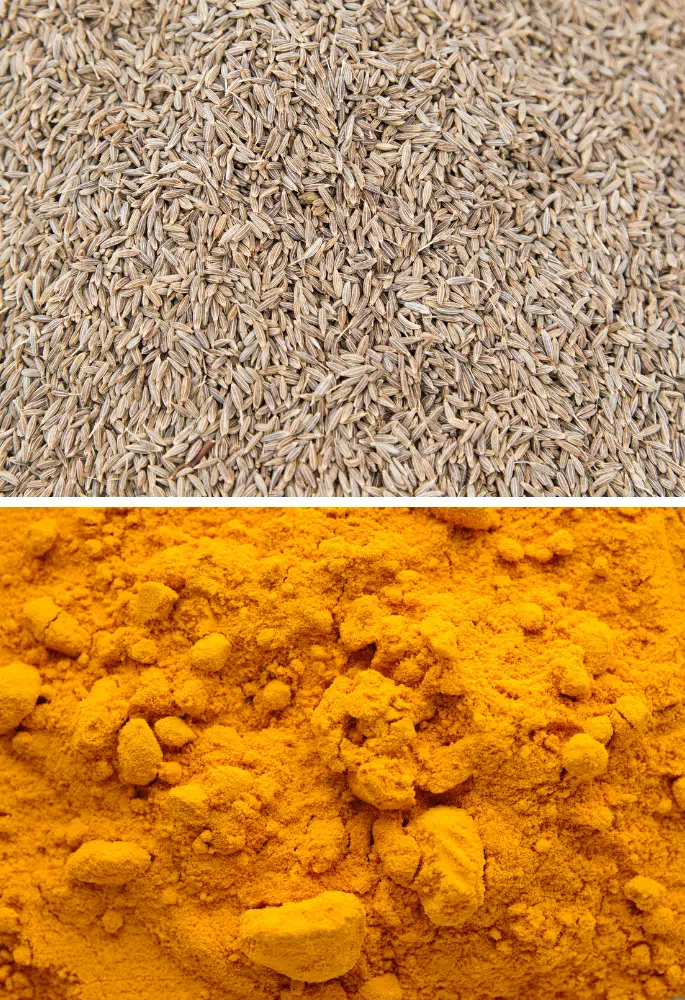No burger would be complete without the sharp pickled flavour of a gherkin… Or is it a cornichon? Are these two interchangeable or are there more differences than meets the eye?
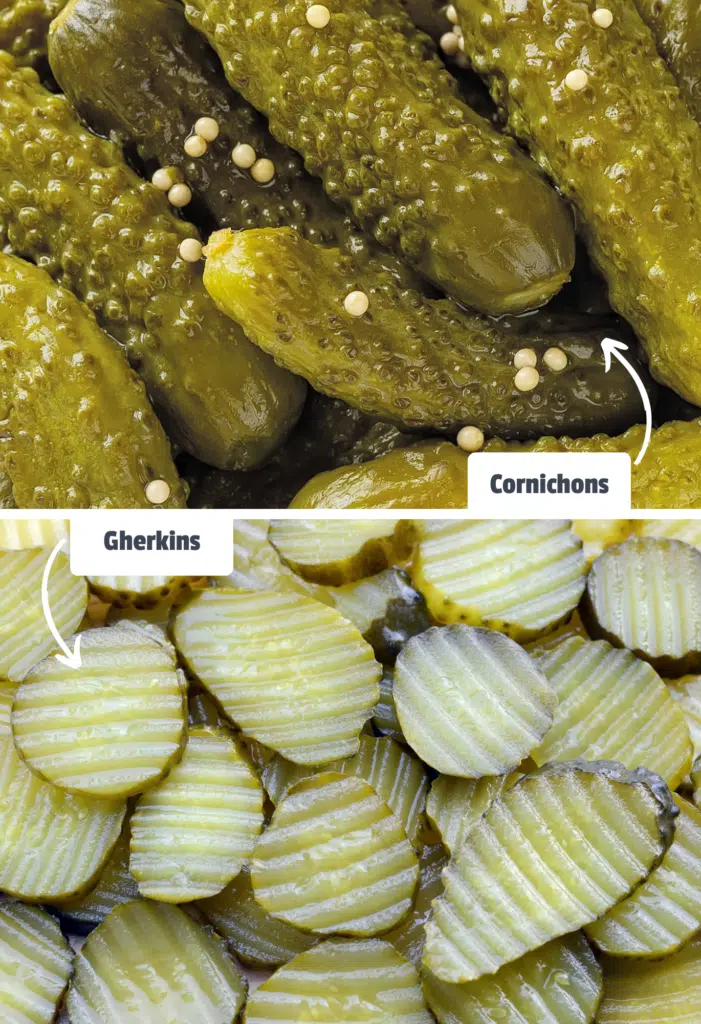
The most significant difference between cornichons and gherkins is simply their size. Cornichons are a tarter variety of gherkin harvested young, when the gherkin is only a couple of inches long, whereas most gherkins grow to be around 5 inches.
What are Cornichons?
In some places, cornichons are better known as French gherkins or tiny gherkins – and tiny they are!
Cornichons are harvested when they are only a few inches long, roughly 1 ½ – 2 inches in length and a mere ¼ inch in diameter. They are purposefully harvested when they are young from a few varieties of fast-growing gherkin plants. Some cornichons only need 2 weeks to grow before they are ready to be harvested.
As cornichons are a variety of gherkin, they are not a cucumber, though they are closely related.
By harvesting cornichons after only a few weeks, they retain a tartness that helps to balance out their mild sweetness. This makes cornichons the perfect pairing for rich and salty foods that can otherwise be overwhelming.
They are also harder than mature gherkins as they haven’t had the time to soften yet. Likewise, they have a bumpy exterior because of when they are harvested.
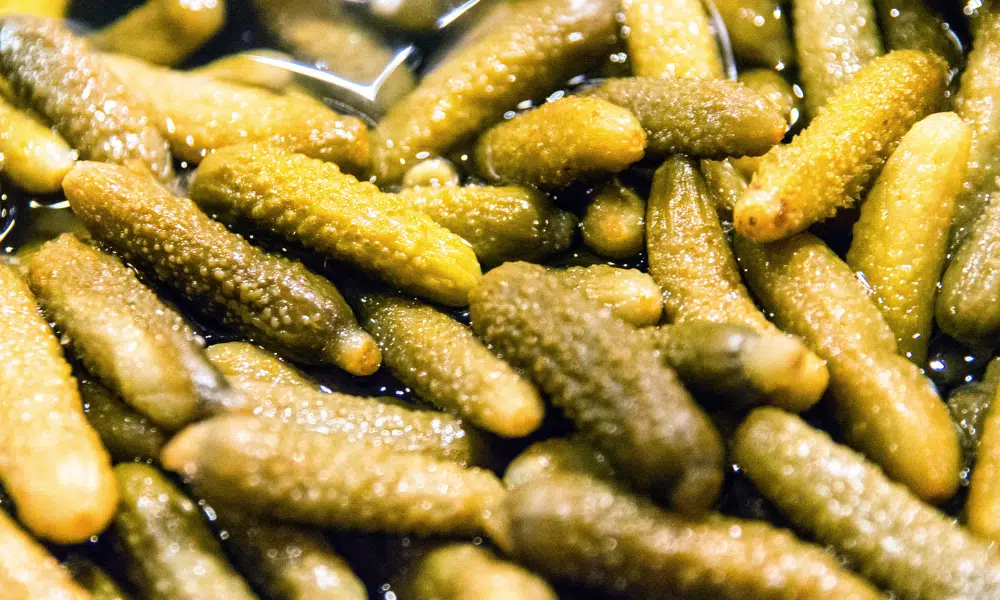
What are Gherkins?
When most see the word gherkin in a recipe, they instantly think of pickled cucumbers, probably because the word itself is a derivative of Dutch for ‘small pickled cucumber’. But that is not quite what a gherkin is.
Gherkins are related to the cucumber you would chop up for your afternoon sandwich, though they are not the same species.
There is one reason that gherkins are grown at all, and that is to be pickled. They’re not something you can harvest and eat instantly.
In most cases, gherkins will be pickled with dill and possibly garlic, creating a more savoury finish. However, there are various gherkins, from spicy to sweet. Their flavour all depends on the herbs or spices that they are pickled with.
They have a high water content, meaning that when they are pickled, that water is replaced with whatever flavours you pickle the gherkins in
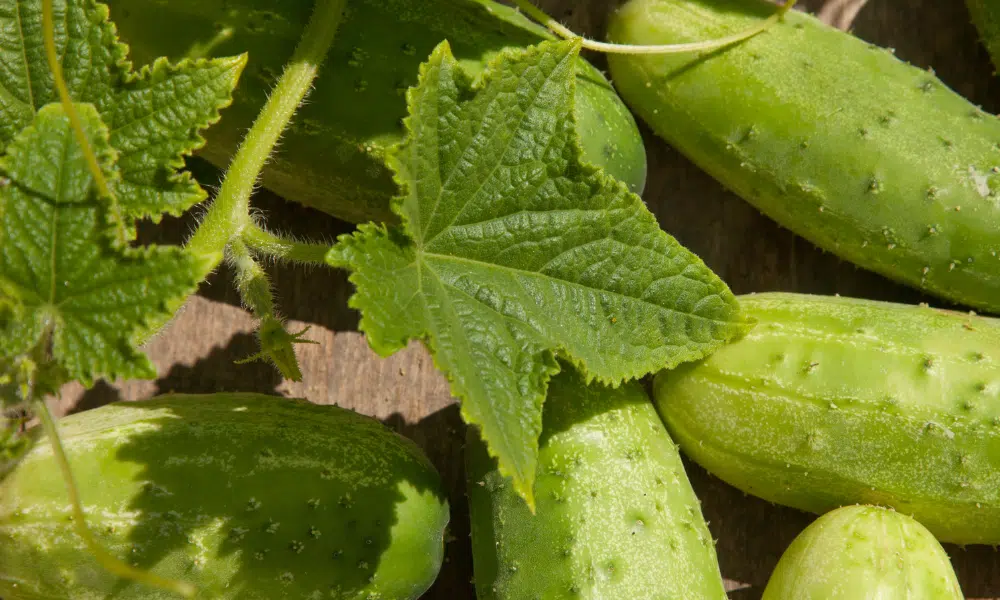
Similarities Between Cornichons and Gherkins
The fact is that you may not have the choice between gherkins or cornichons in your local supermarkets. Here are a few similarities between the two to show their ability to be swapped out for each other:
- Appearance – Aside from their clear size difference, cornichons and gherkins look very similar. They both tend to be a vibrant shade of green when they are harvested, turning a browner green when pickled. Gherkins and cornichons also have similar amounts of bumps on the outside, creating texture when bitten into.
- Use – Of course, one of the most common uses for pickled gherkins and cornichons is to add acidity and crunch to a burger. Both work just as well as one another.
- Sweet Or Savoury – Because cornichons are just small gherkins, they can be flavoured and pickled similarly to any other type of gherkin. Of course, some flavours work better with the cornichon’s tart sweetness, but for the most part they can be pickled to be sweet or savoury.
- Shelf Life – An unopened jar of gherkins and cornichons can last for 2 whole years after their expiration date, which is already a few years in advance. That is, so long as the jars have been kept in a dry place. Once the jars are opened, both of the pickled treats will still be good for a year in the fridge.
- Cucumber Relations – No matter the amount of confusion surrounding cornichons and gherkins, neither are exactly a cucumber. They are both very closely related to the cucumber, but they are not exactly the same type of food as a regular cucumber.
Differences Between Cornichons and Gherkins
It is not always clear how a cornichon differs from a gherkin. Here are a few key differences to help you figure it out:
- Harvesting Time: The whole point of cornichons is to harvest them early to keep them small and capture their tart and sweet flavour. They only need 2 weeks to get to prime harvesting size. As for other gherkins, they need at least 2 months to grow the full 5 inches and develop their slightly milder flavour.
- Size Difference: Of course, it only takes one look at a cornichon and gherkin side by side to know they are different. Gherkins are usually around 5 inches long, much smaller than other cucumber relations but still a sizable crop. Cornichons on the other hand are a tiny 1 ½ – 2 inches long, less than half the size of a regular gherkin.
- A Tarty Taste: For the most part, unless you have seriously misjudged when your gherkins are ready to be harvested, gherkins do not have a tart taste. That tartness is only present when the gherkins are underripe. However, it is the natural mix of tartness and sweetness that makes a cornichon flavour so much more impactful than a regular gherkin.
Cornichons vs Gherkins: Which Wins?
You’ve now got to decide… Which do you prefer? Would you prefer to find a few gherkin slices or cornichon pieces in your burger? It’s time to have your say on cornichons vs gherkins:
Do You Prefer Cornichons or Gherkins?
Acacia may be a freelance writer by day, but they are a food fanatic by night. They are always trying out new recipes or finding different ways to elevate classical dishes. But their biggest culinary aim is to educate others on the basics of the kitchen so that they too can enjoy delicious food.


